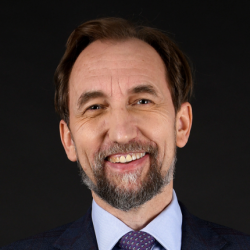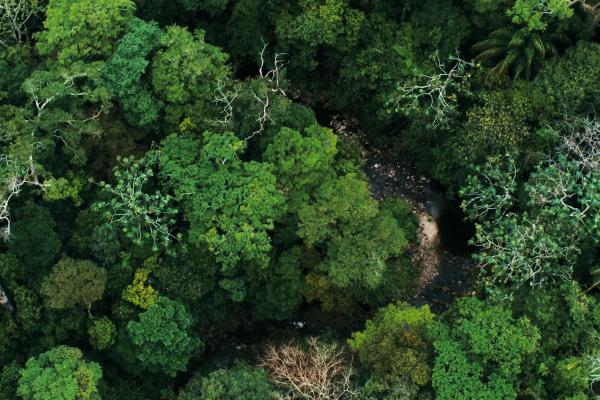
Environmental defenders and indigenous activists face grave threats to their life and liberty. Zeid Raad Al Hussein calls on Latin American governments to ratify the Escazú Agreement - the pioneering treaty that specifically includes the protection of human rights defenders in environmental matters. Published in O Globo and El Pais.
Latin America faces a crisis of consent. Across the continent, people are taking to the streets in their hundreds of thousands to vent their anger and frustration at a political elite that is seen as remote and unable to deliver jobs, security and the promise of a better future.
But there is still a way for Latin America to show leadership on one of the greatest existential threats of our time, climate change, even though the wave of social protests means the COP 25 climate summit is now taking place in Spain rather than Chile.
The Escazú Agreement offers a means by which governments and citizens in the region of Latin America and the Caribbean can simultaneously accelerate progress on climate action, protect human rights and foster greater inclusivity across their societies.
All leaders need to do is ratify it.
The Escazú Agreement is the first treaty of its kind in the world that specifically includes the protection of human rights defenders in environmental matters. It is legally binding and ensures the rights to environmental information, public participation in environmental decision-making and access to justice.
We know that marginalised groups – the poor, the landless and indigenous peoples – are already the most exposed to climate change despite having contributed the least to rising global emissions.
We also know that environmental defenders and indigenous activists face grave threats to their life and liberty: recent research suggests that at least 1,558 people in 50 states were killed between 2002 and 2017.
If governments across the region are to reconnect with their citizens to deliver effective and fair governance, they need to ensure that respect for human rights, the rule of law and universal freedoms – the key values of the Escazu Agreement - are at the top of their agenda.
From Chile to Venezuela, Bolivia to Colombia, governments of both the right and the left are currently under attack, showing that this broad wave of anger cannot be contained or dismissed as the partisan reaction to a particular regime.
The failure of Latin America’s politicians to address their citizens’ concerns and give them a sense of inclusion and purchase in decision-making exacerbates the region’s already profound socio-economic inequalities and injustices.
Chile’s decision to cancel its hosting of COP 25 in light of the serious and ongoing nationwide protests shows how national crises can have a damaging impact on multilateral institutions and processes that matter to the whole world.
Earlier this year, the world looked on aghast as fires swept through the Amazon. This dismay was compounded by the response of Brazil’s populist President Jair Bolsonaro, spurning any notion of global solidarity or responsibility.
As a former UN High Commissioner for Human Rights, I am deeply alarmed that the response of so many Latin American governments and their security forces to the recent protests has been one of disproportionate violence, repression and even apparent cases of torture.
Such scenes recall dark episodes from the continent’s recent past, when vicious military dictatorships abused and murdered with impunity and wilfully ignored the long-term interests of their people.
But for environmental defenders, this is simply “business as usual”.
No group is more threatened by the destruction of the Amazon rainforest, or at risk of extrajudicial killings in defence of their communities, than the indigenous people who have lived in and preserved its nature for generations.
These proud communities, all too often marginalised and denied their fundamental rights, have a rich and sophisticated knowledge of their habitat. This makes them effective conservationists and guardians of biodiversity, and indispensable fighters against climate change, who deserve our protection and support.
Implementing the Escazú Agreement will help redress this imbalance. It includes clauses that specifically protect environmental defenders, recognising that they are more likely to be killed in Latin America than in any other part of the world.
For the Agreement to enter into force, 11 countries of the 33 in the region must ratify it. So far, 21 have signed the Agreement and five – Bolivia, Guyana, St. Kitts and Nevis, St. Vincent and Uruguay — have ratified it.
Now is the time for other states to show true leadership. Ratifying Escazú would be a tangible sign to the people of Latin America, and the wider world, that its heads of state understand the severity of the climate crisis and its intersections with poverty, discrimination and human rights.









